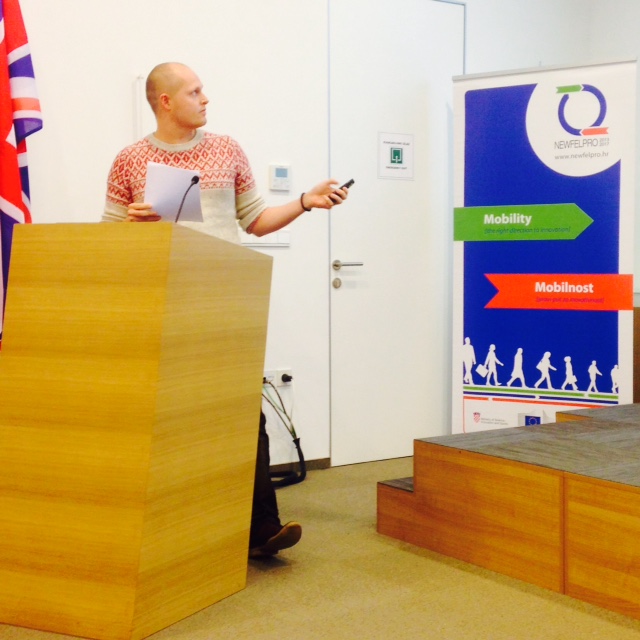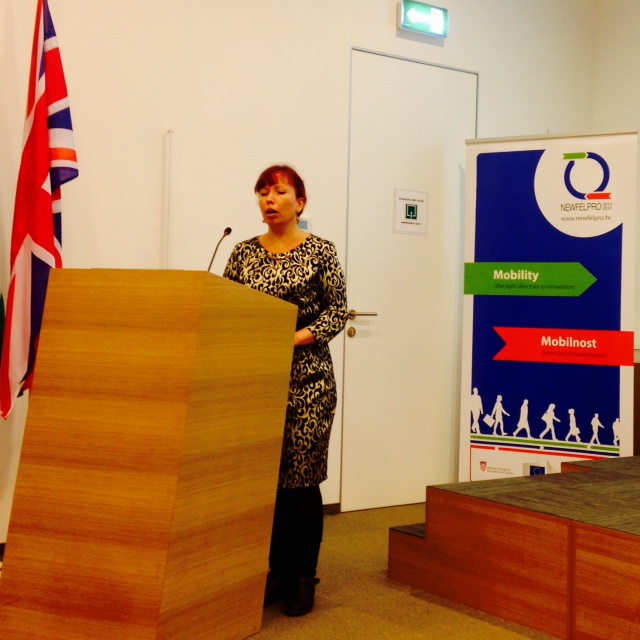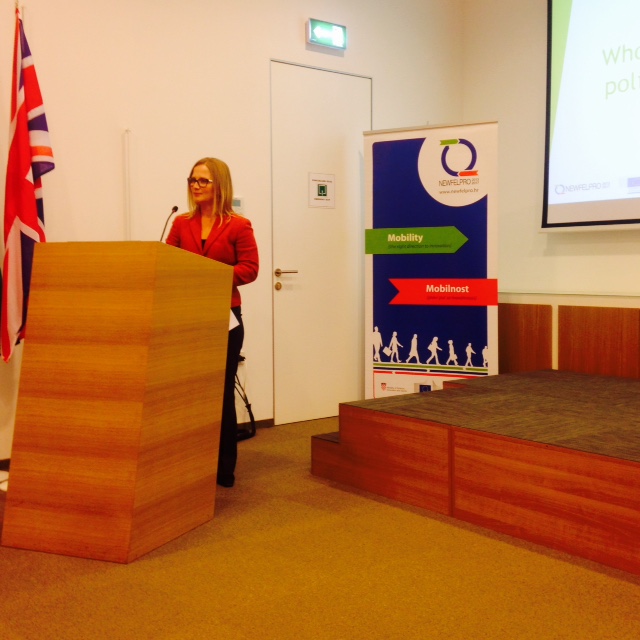First presentation of researchers and the projects financed through the NEWFELPRO project was held yesterday at the European Parliament's Information. The aim of these presentations is to present the results of the publically financed research, covey the importance of financing scientific research and the effect these have on the wider community.
First to present their results were:
All three researchers had very interesting presentations “provoking” a number of questions from those who attended the presentation showing how each is contributing to reaching the goals set out with NEWFELPRO. Vera's project shows strengthening of international cooperation through the cooperation of University of Rijeka and University of Dauvgapils profiling the former as internationally visible. On the other hand, Andrew's smooth incorporation within the Croatian scientific community shows how Croatia is on a good track of providing attractive scientific surroundings that enable for a long-term inclusion of those coming from abroad. Dagmar with her arrival opened a whole new chapter of scientific research in Croatia in the area of public policy along with being the signifier of the brain gain we strive to achieve through the reintegration scheme.
With these presentations, all three of them showed carrying research in exceptionally relevant subjects of today’s society proving that the social sciences can still aptly and successfully answer to the social challenges. In addition, this presentation were foreseen as another proof of the competitiveness of social sciences when it comes to public financing of research despite the somewhat dishearten hum coming from the Academia. However, it needs to be noted how relevance and timeliness of research along with the continuing high quality of the researcher himself/herself is what factors the most when talking about excellent science in social sciences.
We want to thank everyone who attended the presentation and invite you to the next one presentation with a new set of researchers and their projects!


Andrew Hodges Vera Boronenko
First to present their results were:
- Dr. Andrew Hodges, incoming researcher at The Institute of Ethnology and Folklore Research: "Teaching in Croatian in Serbia: Linguistic and Social Hierarchies",
- Dr. Vera Boronenko, incoming researcher at the University of Rijeka - Faculty of Economics: "Rethinking Territory Development in Global Comparative Researches",
- Prof. Dagmar Radin, researcher in reintegration at the University of Zagreb - Faculty of political science: "Who is included? Health policy making in Croatia"
All three researchers had very interesting presentations “provoking” a number of questions from those who attended the presentation showing how each is contributing to reaching the goals set out with NEWFELPRO. Vera's project shows strengthening of international cooperation through the cooperation of University of Rijeka and University of Dauvgapils profiling the former as internationally visible. On the other hand, Andrew's smooth incorporation within the Croatian scientific community shows how Croatia is on a good track of providing attractive scientific surroundings that enable for a long-term inclusion of those coming from abroad. Dagmar with her arrival opened a whole new chapter of scientific research in Croatia in the area of public policy along with being the signifier of the brain gain we strive to achieve through the reintegration scheme.
With these presentations, all three of them showed carrying research in exceptionally relevant subjects of today’s society proving that the social sciences can still aptly and successfully answer to the social challenges. In addition, this presentation were foreseen as another proof of the competitiveness of social sciences when it comes to public financing of research despite the somewhat dishearten hum coming from the Academia. However, it needs to be noted how relevance and timeliness of research along with the continuing high quality of the researcher himself/herself is what factors the most when talking about excellent science in social sciences.
We want to thank everyone who attended the presentation and invite you to the next one presentation with a new set of researchers and their projects!


Andrew Hodges Vera Boronenko

Dagmar Radin
